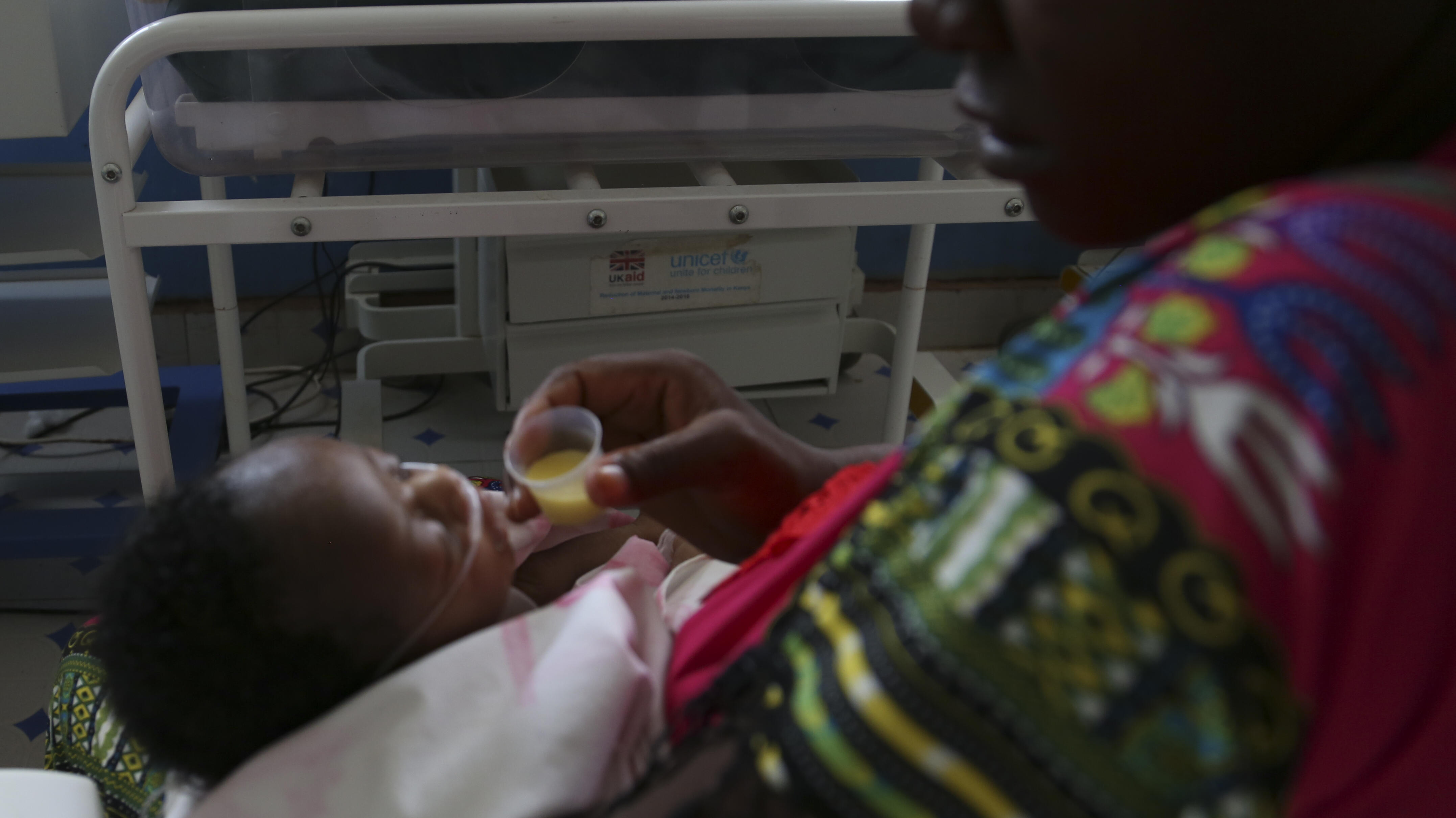
The LSTM led Neonatal Nutrition Network has published in PLOS ONE the results from a study looking at patient populations, priority diseases and outcomes in newborns under 48 hours old admitted to seven hospitals in both Kenya and Nigeria. The study findings showed that greater efforts are needed to address the very high burden of illnesses and mortality in hospitalized newborns in sub-Saharan Africa.
Globally 2.4 million infants died in the first 28 days of life in 2019, with most deaths occurring in the first week of life. The majority were preventable with equitable access to adequate, evidence-based maternal and newborn health care. Sub-Sharan Africa is the region that bears the highest burden of neonatal deaths whilst making least progress in addressing neonatal morbidity and mortality.
The Neonatal Nutrition Network (NeoNuNet) was set up to build clinical research capacity within neonatal units in sub-Saharan Africa, initially setting up centres in Kenya and Nigeria to facilitate the follow up of low birthweight (LBW, less than 2500 grams) infant cohorts to evaluate long-term effects of early nutrition and modulation of the developing gut microbiome.
LSTM’s Professor Stephen Allen is NeoNuNet’s Chief Investigator and was Senior Author on the paper outlining the study results, published in the journal PLOS One. He said: “Our report provides valuable and detailed information about a highly vulnerable population managed with limited resources – newborns that require admission for neonatal care in sub-Sharan Africa. Our aim was to generate a core database to help us develop future research studies and offering the opportunity to improve care.”
Recording information from a network of seven secondary and tertiary level neonatal units in Nigeria and Kenya over a six-month period, the study looked at the admission of babies under 48 hours old. In total, 2280 newborns were admitted, with 57% of infants having low birthweight and more that 22% being of very low birth weight (less than 1500 grams). 21% of infants were very preterm (with a gestation of under 32 weeks). The most common reasons for admission were jaundice, suspected sepsis, respiratory conditions, and birth asphyxia. Over 18% of infants died and mortality was very high in those infants with very low birth weight and being very preterm.
LSTM’s Dr Helen Nabwera, leads the NeoNuNet project and is first author on the paper. She explained: “Our findings emphasize the importance of collaborative work involving maternal and neonatal health clinicians and researchers working in partnership with families to develop strategies to prevent adverse neonatal outcomes that are often closely linked with poor maternal health outcomes. Improved prevention and management of conditions that affect very preterm and very low birth weight infants deserve to be a health and research priority.”
This comprehensive multicentre data on the characteristics and short-term outcomes of hospitalised newborns in sub-Saharan Africa will support much needed priority setting for research and quality improvement in maternal and neonatal care. The Network identified a high burden of preventable maternal and neonatal illnesses in Nigeria and Kenya with the highest risk of mortality amongst very preterm and very low birth weight infants.
The NeoNuNet has already resulted in several valuable outputs including the published reports of the perceptions of parents and health professionals and evidence for feeding practices in very low birthweight and preterm infants and is supporting an on-going feasibility study of probiotics in preterm infants in Nigeria.
Burden of disease and risk factors for mortality amongst hospitalized newborns in Nigeria and Kenya - Published in PLOS ONE;January 14, 2021 - https://doi.org/10.1371/journal.pone.0244109